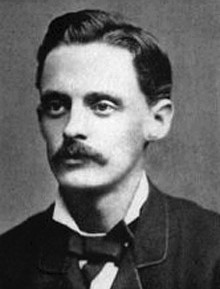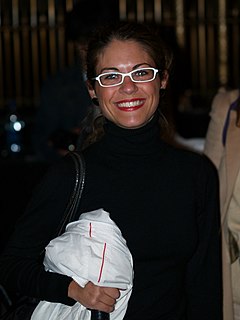A Quote by Hunter Hayes
I used to think there was a scientific way to do things. Like a proper way to answer a question or that kind of stuff. It's like, there's not! There's not a method, there's not a science to it.
Related Quotes
When people think science and cooking, they have no idea that it's not correctly expressed. We're actually applying the scientific method. People think chemistry and physics are science, but the scientific method is something else.... It's the science that the world of cooking generates: science of butter; science of the croissant.
If the question were, "What ought to be the next objective in science?" my answer would be the teaching of science to the young, so that when the whole population grew up there would be a far more general background of common sense, based on a knowledge of the real meaning of the scientific method of discovering truth.
Science is a way of getting knowledge. It's a method. It's a method that really relies on making mistakes. We propose ideas, they are usually wrong, and we test them against the data. Scientists do this in a formal way. It's a way that everyone can go through life; that's how we should be teaching science from a very young age.
Science, at its core, is simply a method of practical logic that tests hypotheses against experience. Scientism, by contrast, is the worldview and value system that insists that the questions the scientific method can answer are the most important questions human beings can ask, and that the picture of the world yielded by science is a better approximation to reality than any other.
The fundamental characteristic of the scientific method is honesty. In dealing with any question, science asks no favors. ... I believe that constant use of the scientific method must in the end leave its impress upon him who uses it. ... A life spent in accordance with scientific teachings would be of a high order. It would practically conform to the teachings of the highest types of religion. The motives would be different, but so far as conduct is concerned the results would be practically identical.
I think I get in trouble sometimes, especially when it's like I need to be easier on [my] kids because maybe I'm a rule-follower now. I'll look at something like the kids' coloring or something and I'm like, "That's not the way that marker should be used." All imagination is gone, and it's just like, "Here's the proper way that we use a marker," you know? Maybe that's a dad thing.
I always find it kind of more interesting when people ask questions like, "What were you like as a kid?" Or just kind of personal history stuff, like, "What was the lowest point of your life?" Because that would be like, "Huh, well, I'd have to think about that one." And then give an honest answer. I think a lot of people don't want to give honest answers, or they just are in business showbiz mode when they're talking about stuff, so that's probably why a lot of that kind of thing doesn't get asked.
The whole point is that colors that are harder to wear, like pink, less expected, or maybe not as commercial; if they're used in the right way, they can make a design way more compelling, especially in menswear where color isn't often used. I think it's really exciting to have a lot of color in men's stuff.




































